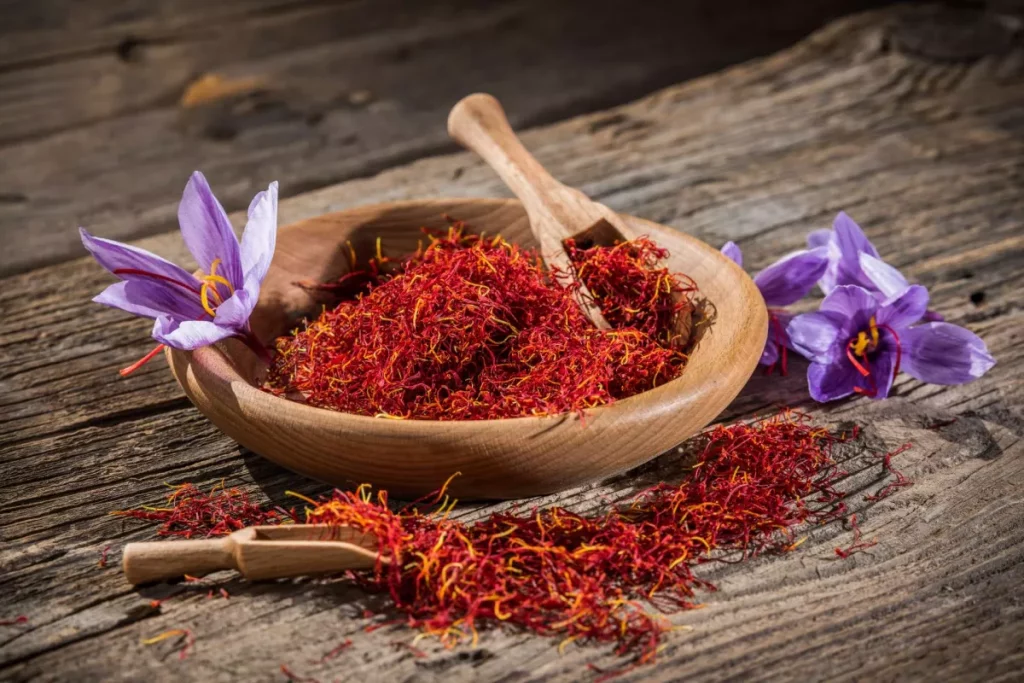Saffron, known as the “golden spice,” is a prized ingredient in Indian cuisine and traditional medicine. Derived from the flower Crocus sativus, saffron is not only valued for its distinctive flavor and vibrant color but also for its potential health benefits. Among its many uses, saffron has gained recognition as a natural antidepressant, offering a promising alternative for managing emotional well-being.

Source: www.finedininglovers.com
Overview of Saffron:
Saffron has a rich history and is widely used in various cultures for culinary and medicinal purposes. It is obtained from the stigma of the saffron crocus flower and requires meticulous harvesting and processing, making it one of the most expensive spices in the world. Saffron’s unique flavor and aroma add depth to dishes, while its vibrant color enhances the visual appeal.
Traditional Uses and Health Benefits:
In traditional medicine, saffron has been revered for its therapeutic properties. It is believed to possess antioxidant, anti-inflammatory, and mood-enhancing effects. Recent scientific studies have highlighted saffron’s potential as a natural antidepressant, with compounds like crocin and safranal contributing to its mood-regulating properties.
Saffron and Emotional Well-being:
Depression and anxiety disorders are prevalent mental health conditions globally. Saffron has shown promise in alleviating symptoms associated with these conditions. Research suggests that saffron may enhance serotonin levels, a neurotransmitter responsible for mood regulation, leading to improved emotional well-being. It may also help reduce stress, promote relaxation, and support a positive mindset.
Clinical Evidence and Dosage:
Several clinical trials have investigated the effects of saffron on depression and anxiety. While more research is needed, the results have been encouraging, indicating that saffron may be an effective adjunctive therapy. Recommended dosages vary, but typically, a daily dose of 30 mg to 100 mg of saffron extract has been used in studies.
Precautions and Considerations:
As with any supplement or natural remedy, it is important to exercise caution and consult a healthcare professional before incorporating saffron into your routine. Saffron may interact with certain medications and may not be suitable for individuals with specific health conditions. Additionally, obtaining high-quality saffron from trusted sources is crucial to ensure its potency and safety.
Incorporating Saffron into Your Lifestyle:
To enjoy the potential benefits of saffron, consider incorporating it into your daily routine. Saffron can be used in various forms, including powdered saffron for cooking, saffron-infused tea, or saffron supplements. Experiment with adding saffron to rice dishes, stews, desserts, or warm beverages to savor its unique flavor and potential health benefits.
Saffron, the golden spice, not only adds color and flavor to culinary delights but also holds promise as a natural antidepressant. Its potential mood-regulating properties and traditional uses make it an intriguing option for those seeking natural approaches to emotional well-being. While more research is needed, saffron offers an exciting avenue for further exploration in the realm of mental health.
Note: It is important to consult a healthcare professional before using saffron as a natural remedy, especially if you have pre-existing medical conditions or are taking medications.

